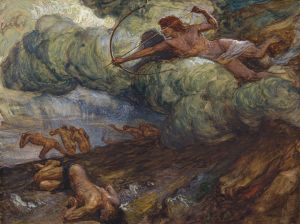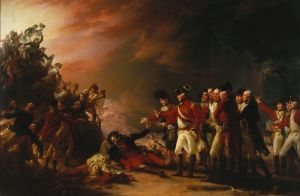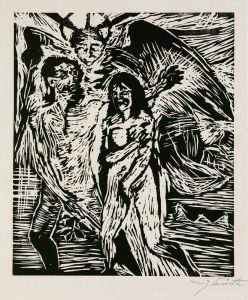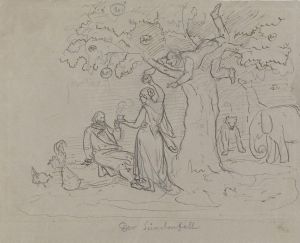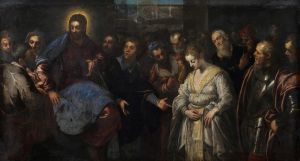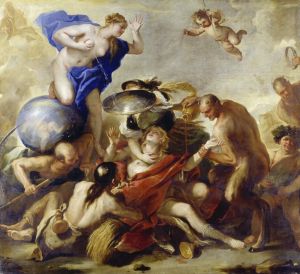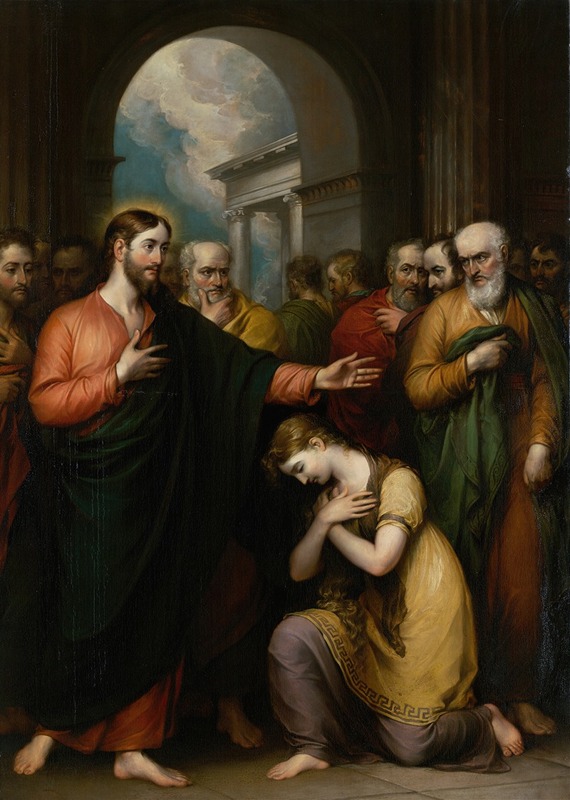
The Woman Taken in Adultery
A hand-painted replica of John Trumbull’s masterpiece The Woman Taken in Adultery, meticulously crafted by professional artists to capture the true essence of the original. Each piece is created with museum-quality canvas and rare mineral pigments, carefully painted by experienced artists with delicate brushstrokes and rich, layered colors to perfectly recreate the texture of the original artwork. Unlike machine-printed reproductions, this hand-painted version brings the painting to life, infused with the artist’s emotions and skill in every stroke. Whether for personal collection or home decoration, it instantly elevates the artistic atmosphere of any space.
John Trumbull's painting The Woman Taken in Adultery is a work of art that depicts a biblical scene from the Gospel of John in the New Testament. The painting illustrates the moment when Jesus is confronted by the scribes and Pharisees, who bring before him a woman accused of adultery. According to the biblical account (John 8:1–11), the accusers ask Jesus whether the woman should be stoned, as prescribed by the Law of Moses. In response, Jesus famously states, "Let him who is without sin among you be the first to throw a stone at her." This statement causes the accusers to leave one by one, and Jesus ultimately tells the woman that he does not condemn her, instructing her to "go, and sin no more."
Trumbull, an American artist best known for his historical paintings of the American Revolutionary War, created The Woman Taken in Adultery in 1838. This work is notable for its dramatic use of light and shadow, which emphasizes the emotional intensity of the scene. The composition centers on the figure of Jesus, who is depicted in a calm and authoritative manner, contrasting with the more agitated expressions and gestures of the accusers. The woman, shown in a posture of humility and vulnerability, serves as a focal point for the viewer's empathy.
The painting reflects Trumbull's interest in religious themes later in his career, a departure from his earlier focus on historical and patriotic subjects. It is one of the few works by Trumbull that explores a biblical narrative, showcasing his ability to convey moral and spiritual messages through art. The piece demonstrates his skill in rendering human emotion and interaction, as well as his mastery of neoclassical techniques.
The Woman Taken in Adultery is currently housed in the collection of the Yale University Art Gallery in New Haven, Connecticut. Trumbull, who was a graduate of Yale College, bequeathed many of his works to the university upon his death in 1843. The painting remains an important example of Trumbull's artistic range and his engagement with themes of morality and forgiveness.
This artwork is often studied in the context of Trumbull's broader oeuvre and as part of the 19th-century American art movement, which frequently drew inspiration from religious and historical subjects.





